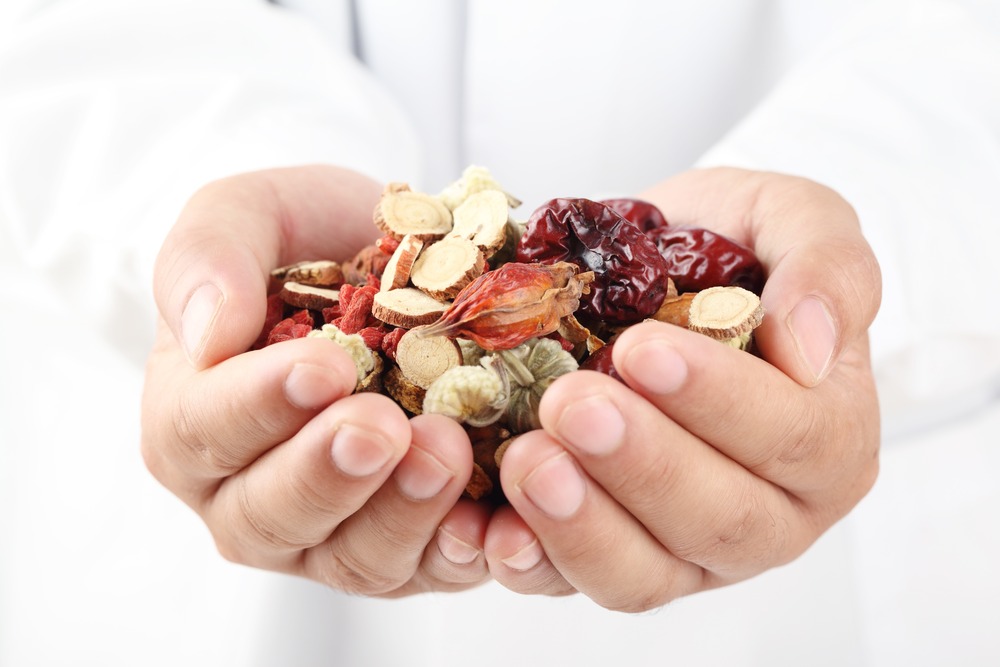Integrative medicine is a patient centered approach to health and wellness that incorporates the best of both traditional medical systems and modern medicine. As a licensed acupuncturist focusing on chronic urological conditions, my commitment lies in harnessing the potential of acupuncture—an ancient technique validated by modern science—to address many chronic conditions such as interstitial cystitis (IC), overactive bladder (OAB), and Chronic Prostatitis/Chronic Pelvic Pain Syndrome (CP/CPPS).
Acupuncture not only targets pain and enhances bladder function but also promotes overall well-being, and reduces the dependance on medications. It can be used as part of a broader treatment plan that may include medications, physical therapy, dietary changes, and stress management techniques.
This blog post aims to explore the role of acupuncture within integrative urology, focusing on its benefits for managing IC, OAB, and CPPS. By understanding these conditions from a holistic perspective, patients and healthcare providers can unlock new pathways to healing and comfort, embodying the true spirit of integrative care.
DISCLAIMER: The information provided in this blog post is intended for educational and informational purposes only. It is not meant to substitute for professional medical advice, diagnosis, or treatment. While I am a licensed acupuncturist with experience in the field of integrative urology, my insights should not replace the expertise of healthcare professionals. I encourage readers to consult with their doctor or a qualified health provider with any questions regarding a medical condition or treatment. Remember, every individual’s health situation is unique, and treatments should be tailored to fit personal health needs.
Role of Acupuncture in Integrative Urology
Acupuncture plays a vital role in enhancing an individual’s overall well-being, particularly in the management of conditions such as interstitial cystitis, overactive bladder, and Chronic Pelvic Pain Syndrome. Here’s a detailed look into how acupuncture contributes to the holistic management of these conditions:
Pain Relief
Acupuncture can help modulate the pain response and reduce the intensity of discomfort associated with IC and CPPS. Some of the mechanisms behind this involve the release of endorphins, the body’s natural painkillers, and modulation of the nervous system, which together can lead to a significant decrease in perceived pain levels. (1)
Stress Relief
Stress and anxiety often exacerbate symptoms of IC, OAB, and CP/CPPS, creating a vicious cycle that impacts the individual’s quality of life. Acupuncture lowers stress levels by regulating the body’s stress responses. This calming effect is achieved through the reduction of cortisol levels and the promotion of relaxation, making acupuncture a powerful tool for managing stress-related exacerbations of these conditions. (2)
Whole-Person Benefits
Beyond addressing specific symptoms, acupuncture promotes the well-being of the whole person. It works on the principle of restoring balance and harmony within the body, thereby improving sleep quality, enhancing energy levels, and fostering an overall sense of well-being. These holistic benefits are important for individuals dealing with chronic conditions, as they contribute to a more balanced and healthy lifestyle, complementing the physical aspects of treatment.
After a treatment course I will often see long lasting results in reduction of pain and stress.
Evidence-Based Benefits
Research and clinical experience have shown that acupuncture can significantly benefit patients with IC, OAB, and CPPS.
Chronic Prostatitis/Chronic Pelvic Pain
A random control trial involving around 400 men with Chronic Pelvic Pain Syndrome (CPPS) showed that acupuncture markedly reduced their pain.(3) By the fourth week, the acupuncture group experienced significant symptom relief compared to the placebo group, with improvements in pain and quality of life persisting up to 24 weeks post-treatment. This study underscores acupuncture’s potential as a long-term management strategy for CPPS.
Interstitial Cystitis/Bladder Pain Syndrome
A recent study investigated the benefits of acupuncture in reducing pain for women with interstitial cystitis/bladder pain syndrome (IC/BPS).(4) This randomized controlled trial compared electro-acupuncture (EA) to minimal acupuncture (MA) across several weeks, focusing on pain relief and physical examination findings, including pelvic floor muscle tenderness. The study found improvements in worst pain scores for both groups and also noted that EA showed less inhibition from pain as well as decrease in pelvic floor muscle tenderness. Yet, there were no significant differences in average pain and pain severity between the groups.
Overactive Bladder
A systematic review of acupuncture for OAB showed that it demonstrated favorable effects compared to sham acupuncture, particularly in reducing OAB symptom scores and urinary frequency. (5) This study suggested that acupuncture could improve OAB symptoms as effectively as conventional drug therapy, with the combination of acupuncture and drug therapy showing more beneficial effects than drug therapy alone.
It’s important to me that clinical evidence is incorporated into my practice, and I continually seek out the latest research to ensure my patients receive the most effective care.
Mechanism of Action
From a traditional perspective, acupuncture is said to correct imbalances in the flow of qi (energy) through channels known as meridians. This restoration of balance can alleviate symptoms and promote health.
Physiologically, acupuncture has been shown to stimulate the release of endorphins (the body’s natural painkillers), enhance blood circulation, reduce inflammation, and calm the nervous system. (6, 7)
Acupuncture may regulate bladder symptoms through neuromodulation, influencing the autonomic nervous system to improve bladder control and reduce urgency. (5)
Feel Better, Get Acupuncture!
Integrative urology represents a comprehensive approach to health, melding the wisdom of traditional medicine with the advances of modern science. By integrating acupuncture with conventional therapies, patients receive a multifaceted approach to treatment that addresses not just the physical symptoms but also the emotional and psychological challenges.
As an acupuncturist, I am privileged to guide my patients through this journey, offering not just treatments but a holistic partnership aimed at enhancing their quality of life. The goal is always to restore balance, relieve symptoms, and ultimately, improve the well-being of those entrusted to my care.
Please call us at 212-319-5757 to make an appointment or you can schedule your appointment online.
References:
- Zhang Q, Zhou M, Huo M, et al. Mechanisms of acupuncture-electroacupuncture on inflammatory pain. Mol Pain. 2023;19:17448069231202882. doi:10.1177/17448069231202882
- Amorim D, Brito I, Caseiro A, et al. Electroacupuncture and acupuncture in the treatment of anxiety – A double blinded randomized parallel clinical trial. Complement Ther Clin Pract. 2022 Feb;46:101541. doi:10.1016/j.ctcp.2022.101541. Epub 2022 Jan 30.
- Sun Y, Liu Y, et.al. Efficacy of Acupuncture for Chronic Prostatitis/Chronic Pelvic Pain Syndrome: A Randomized Trial. Ann Intern Med. 2021 Oct;174(10):1357-1366. doi: 10.7326/M21-1814. Epub 2021 Aug 17. PMID: 34399062.
- Bresler L, Westbay LC, Hekman L, Joyce C, Fitzgerald CM. Acupuncture for female bladder pain syndrome: a randomized controlled trial. Can J Urol. 2022 Jun;29(3):11154-11161. PMID: 35691037.
- Lee JJ, Heo JW, Choi TY, Jun JH, Lee MS, Kim JI. Acupuncture for the treatment of overactive bladder: A systematic review and meta-analysis. Front Neurol. 2023;13:985288. doi: 10.3389/fneur.2022.985288.
- Maeda Y, Kim H, Kettner N, et al. Rewiring the primary somatosensory cortex in carpal tunnel syndrome with acupuncture. Brain. 2017;140(4):914-927. doi:10.1093/brain/awx015
- Zhang ZJ, Wang XM, McAlonan GM. Neural acupuncture unit: a new concept for interpreting effects and mechanisms of acupuncture. Evid Based Complement Alternat Med. 2012;2012:429412. doi:10.1155/2012/429412



